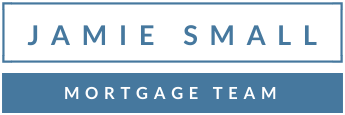Ottawa Mortgage Blog
Your Trusted Ottawa Mortgage Experts
Thinking About a Vacation or Cottage Property? Here's What You Should Know
August 15, 2025 | Posted by: Jamie Small - Ottawa Mortgage Broker
There’s something truly Canadian about escaping to the lake, enjoying a quiet cabin in the woods, or owning a getaway in one of our beautiful resort towns. In addition to being a great place for you to enjoy, these properties can also be strong investments. Over time, they often appreciate in value and, in some cases, can provide reliable rental income.If you’ve been dreaming of owning a second property, there are several vacation home financing options to consider — but also a few important rules to keep in mind.
Financing Options
Financing will vary depending on the type of property:Type A Properties
If the property is similar to a standard home — year-round access, potable water, a permanent foundation, and a permanent heat source — most lenders will treat it like a regular home purchase. This means:- Down payment: As little as 5% if it’s owner-occupied (requires default insurance)
- Amortization: Up to 25 years with default insurance (<20% down), potentially up to 30 years with a conventional loan (>20% down)
- Rates: Often similar to primary residence rates
Type B Properties
If the property is seasonal (not winterized or no winter access), has non-potable water (lake intake), no permanent heat source, or no foundation, it’s considered a “Type B” property. This typically means:- Down payment: Minimum 10% down (sometimes more)
- Lender options: Often limited to certain banks or credit unions willing to offer a seasonal property mortgage, but still competitive in many cases
- Rates: Similar to primary residence rates, but the most competitive offers may not be available with more limited lender options
Using Home Equity
Another popular approach to cottage financing in Canada is to leverage the equity in your primary residence. This can be used to finance all or part of your purchase — often the down payment.If you have equity in your primary residence, here are two common options to access it:
- HELOC (Home Equity Line of Credit): Flexible borrowing for all or part of the purchase price
- Refinancing: Restructure your existing mortgage to add funds for the new property
Key Considerations Before You Buy
Access & Services: Year-round road access, hydro, septic/well quality, and internet availability can impact both your enjoyment and your financing eligibility:- Insurance Costs: Seasonal or rural properties can carry higher insurance premiums
- Maintenance: Even seasonal homes need upkeep, including roofs, docks, plumbing, and pest prevention
- Rental Plans: If you plan to rent the property, check zoning bylaws, CRA tax rules, and lender policies
- Budget for Extras: Boat storage, snow removal, fuel costs, and municipal levies can add up quickly
Bottom Line
Buying a vacation or cottage property can be a rewarding investment in your lifestyle — and potentially your portfolio — but the financing rules vary depending on the property type. Speaking with a mortgage professional early will help you understand your options and secure the right terms for your unique getaway.For more information contact me, Jamie Small your Ottawa, Ontario Mortgage Broker today!

